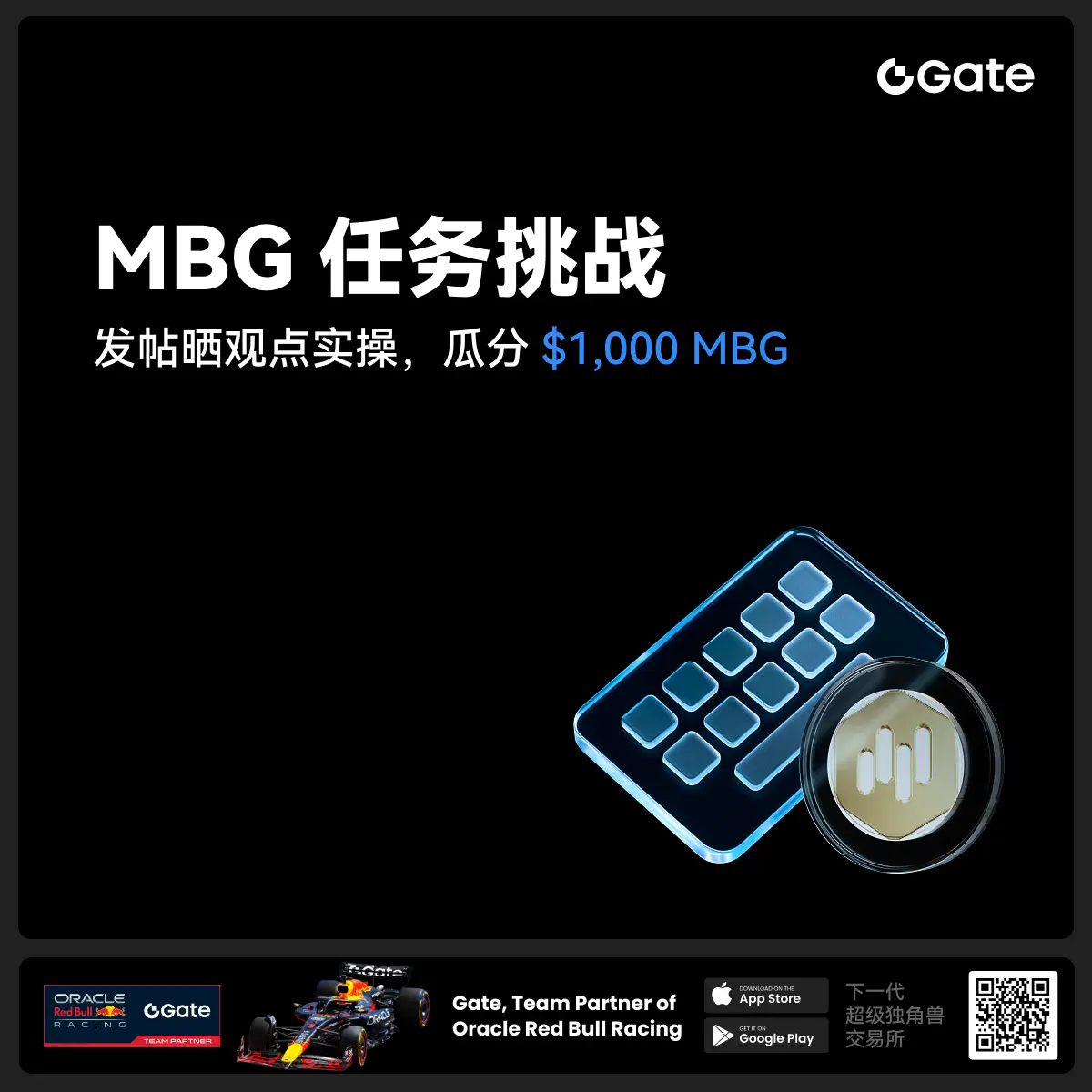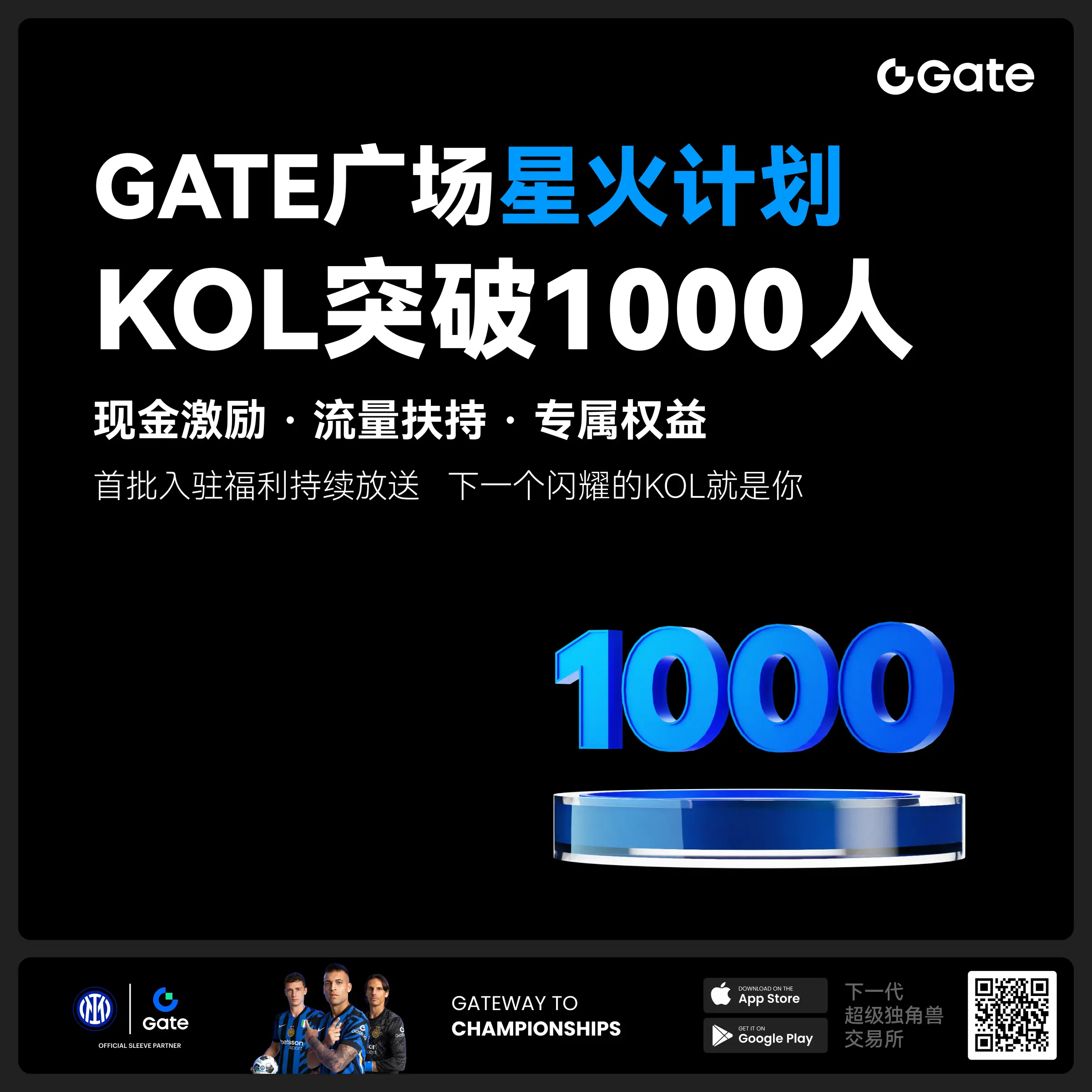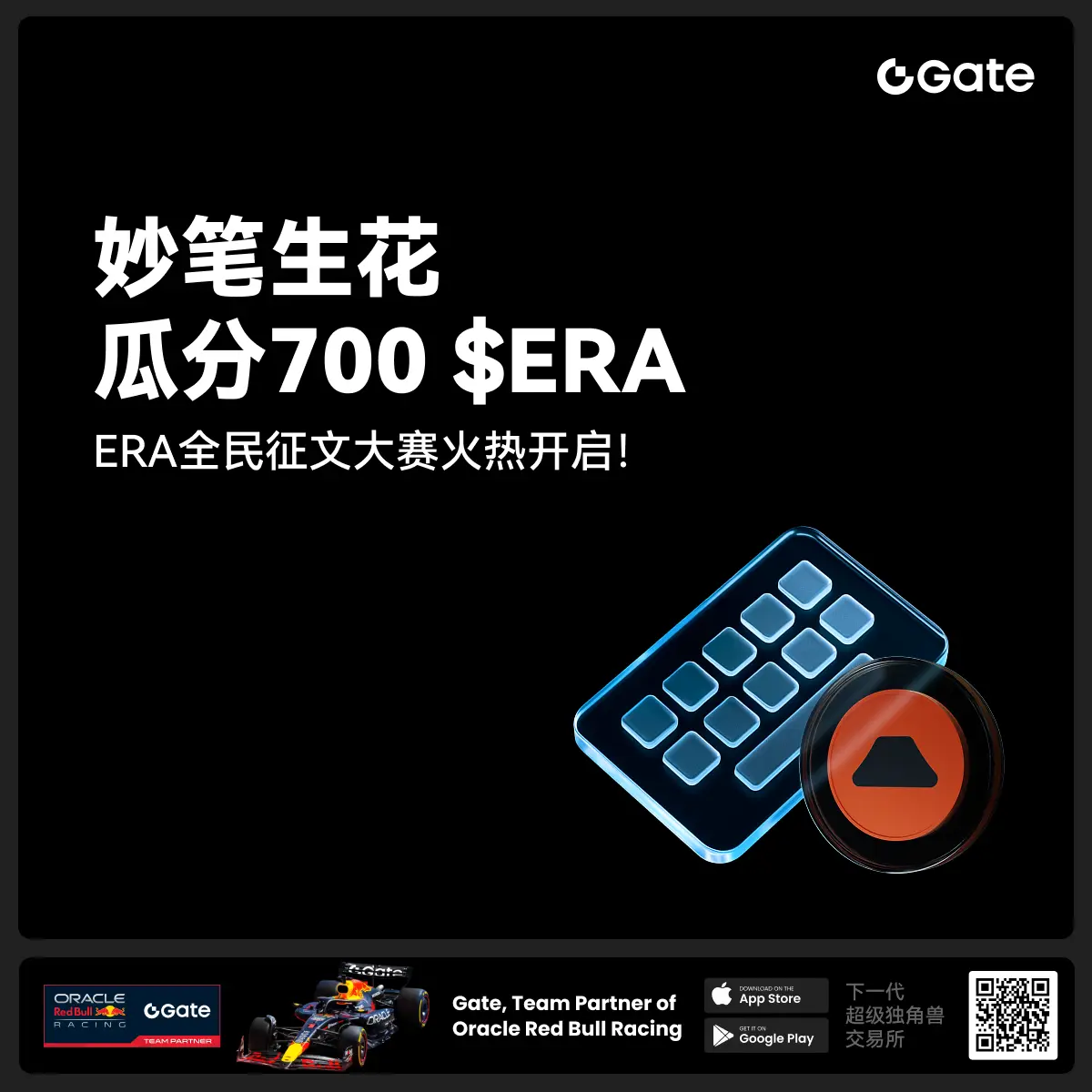- 話題1/3
13396 熱度
21306 熱度
15211 熱度
53581 熱度
19698 熱度
- 置頂
- 📢 Gate廣場 #MBG任务挑战# 發帖贏大獎活動火熱開啓!
想要瓜分1,000枚MBG?現在就來參與,展示你的洞察與實操,成爲MBG推廣達人!
💰️ 本期將評選出20位優質發帖用戶,每人可輕鬆獲得50枚MBG!
如何參與:
1️⃣ 調研MBG項目
對MBG的基本面、社區治理、發展目標、代幣經濟模型等方面進行研究,分享你對項目的深度研究。
2️⃣ 參與並分享真實體驗
參與MBG相關活動(包括CandyDrop、Launchpool或現貨交易),並曬出你的參與截圖、收益圖或實用教程。可以是收益展示、簡明易懂的新手攻略、小竅門,也可以是現貨行情點位分析,內容詳實優先。
3️⃣ 鼓勵帶新互動
如果你的帖子吸引到他人參與活動,或者有好友評論“已參與/已交易”,將大幅提升你的獲獎概率!
MBG熱門活動(帖文需附下列活動連結):
Gate第287期Launchpool:MBG — 質押ETH、MBG即可免費瓜分112,500 MBG,每小時領取獎勵!參與攻略見公告:https://www.gate.com/announcements/article/46230
Gate CandyDrop第55期:CandyDrop x MBG — 通過首次交易、交易MBG、邀請好友註冊交易即可分187,500 MBG!參與攻略見公告:https://www.gate.com/announcements
- 🎉 Gate廣場“星火計劃”入駐KOL突破1000人!
💥 創作者生態迎來全面爆發期!
📈 上首頁、拿獎勵、贏影響力,你還在等什麼?
💰 現金激勵 ✔️
🚀 流量扶持 ✔️
👑 專屬認證 ✔️
從0到1000,我們只用了短短數周,Gate廣場正在成爲Web3內容風暴眼⚡
你發布的不只是內容,而是下一個“爆款機會”!
🌟 加入星火計劃,開啓你的爆發之路!
👉 https://www.gate.com/announcements/article/45695
#GateSquare # #星火计划# #内容创作者新纪元 # #KOL集结令#
- 📢 #Gate广场征文活动第三期# 正式啓動!
🎮 本期聚焦:Yooldo Games (ESPORTS)
✍️ 分享獨特見解 + 參與互動推廣,若同步參與 Gate 第 286 期 Launchpool、CandyDrop 或 Alpha 活動,即可獲得任意獎勵資格!
💡 內容創作 + 空投參與 = 雙重加分,大獎候選人就是你!
💰總獎池:4,464 枚 $ESPORTS
🏆 一等獎(1名):964 枚
🥈 二等獎(5名):每人 400 枚
🥉 三等獎(10名):每人 150 枚
🚀 參與方式:
在 Gate廣場發布不少於 300 字的原創文章
添加標籤: #Gate广场征文活动第三期#
每篇文章需 ≥3 個互動(點讚 / 評論 / 轉發)
發布參與 Launchpool / CandyDrop / Alpha 任一活動的截圖,作爲獲獎資格憑證
同步轉發至 X(推特)可增加獲獎概率,標籤:#GateSquare 👉 https://www.gate.com/questionnaire/6907
🎯 雙倍獎勵機會:參與第 286 期 Launchpool!
質押 BTC 或 ESPORTS,瓜分 803,571 枚 $ESPORTS,每小時發放
時間:7 月 21 日 20:00 – 7 月 25 日 20:00(UTC+8)
🧠 寫作方向建議:
Yooldo
- 🎉Gate 2025 上半年社區盛典:內容達人評選投票火熱進行中 🎉
🏆 誰將成爲前十位 #Gate广场# 內容達人?
投票現已開啓,選出你的心頭好
🎁贏取 iPhone 16 Pro Max、限量週邊等好禮!
📅投票截止:8 月 15 日 10:00(UTC+8)
立即投票: https://www.gate.com/activities/community-vote
活動詳情: https://www.gate.com/announcements/article/45974
- 📢 #Gate广场征文活动第二期# 正式啓動!
分享你對 $ERA 項目的獨特觀點,推廣ERA上線活動, 700 $ERA 等你來贏!
💰 獎勵:
一等獎(1名): 100枚 $ERA
二等獎(5名): 每人 60 枚 $ERA
三等獎(10名): 每人 30 枚 $ERA
👉 參與方式:
1.在 Gate廣場發布你對 ERA 項目的獨到見解貼文
2.在貼文中添加標籤: #Gate广场征文活动第二期# ,貼文字數不低於300字
3.將你的文章或觀點同步到X,加上標籤:Gate Square 和 ERA
4.徵文內容涵蓋但不限於以下創作方向:
ERA 項目亮點:作爲區塊鏈基礎設施公司,ERA 擁有哪些核心優勢?
ERA 代幣經濟模型:如何保障代幣的長期價值及生態可持續發展?
參與並推廣 Gate x Caldera (ERA) 生態周活動。點擊查看活動詳情:https://www.gate.com/announcements/article/46169。
歡迎圍繞上述主題,或從其他獨特視角提出您的見解與建議。
⚠️ 活動要求:
原創內容,至少 300 字, 重復或抄襲內容將被淘汰。
不得使用 #Gate广场征文活动第二期# 和 #ERA# 以外的任何標籤。
每篇文章必須獲得 至少3個互動,否則無法獲得獎勵
鼓勵圖文並茂、深度分析,觀點獨到。
⏰ 活動時間:2025年7月20日 17
探索自主概念的演變:從古希臘城邦到AI與DAO時代
探討"自主"的多重含義:從古希臘城邦到AI時代
"自主"一詞源於古希臘,最初指城邦自治、制定法律且不受更大管理機構控制的權力。隨着時代變遷,這個概念不斷演變,從個人自主延伸到現代技術領域,衍生出新的內涵。
在AI領域,"自主"通常指系統無需人工幹預即可執行任務的能力。自主智能體不僅具備思考和決策能力,還應能長期穩定運行,擁有數字身份、財務自主權,甚至自我的算力控制和能源管理。未來加密網路很可能成爲AI實現高層級自主性的基礎設施。
DAO中"自主"的定義存在分歧。早期以太坊白皮書將其定義爲完全依賴智能合約代碼實現自主運行的組織。但現實中,大多數DAO難以做到完全自動化運轉,逐漸回歸到組織自主治理的含義。社區DAO和理想中的自動化DAO可能會沿着不同路徑發展。
"自主世界"(Autonomous World)是一個新興概念,指基於區塊鏈的、具有嚴格敘事邊界、正式引入規則,且無需特權個體維持的世界。它更接近早期DAO定義,強調客觀性和自我維持。這種世界允許參與者創造客觀事實,不受單一實體控制。
"自主"的含義仍在演變。從古希臘城邦到現代AI,從個人自主到組織自治,再到自主世界,這一概念始終反映了人類對自我實現和自由的追求。然而,關於人類自主性的本質,以及我們是否真能超越宇宙規則的束縛,仍是值得深思的哲學問題。